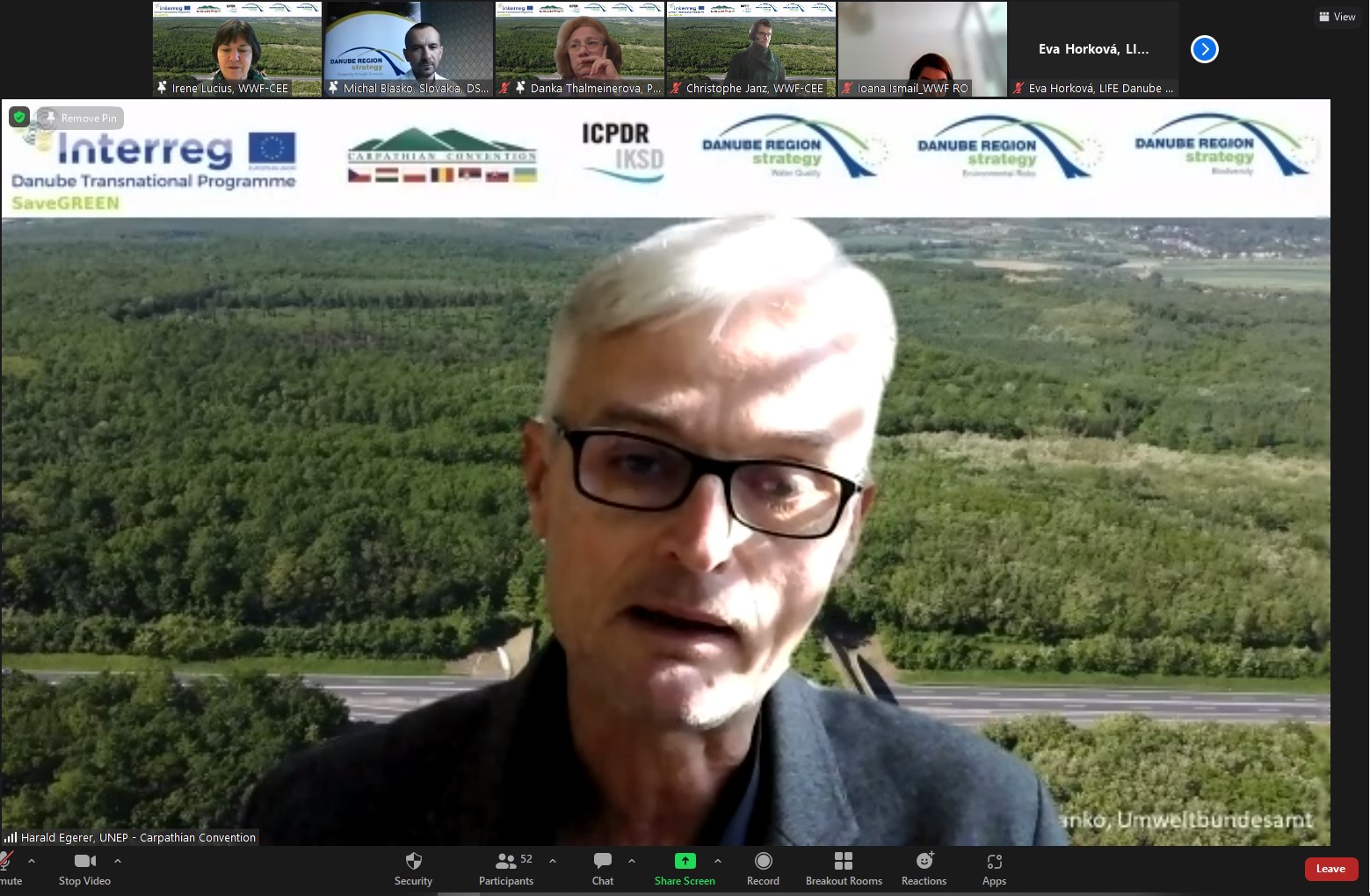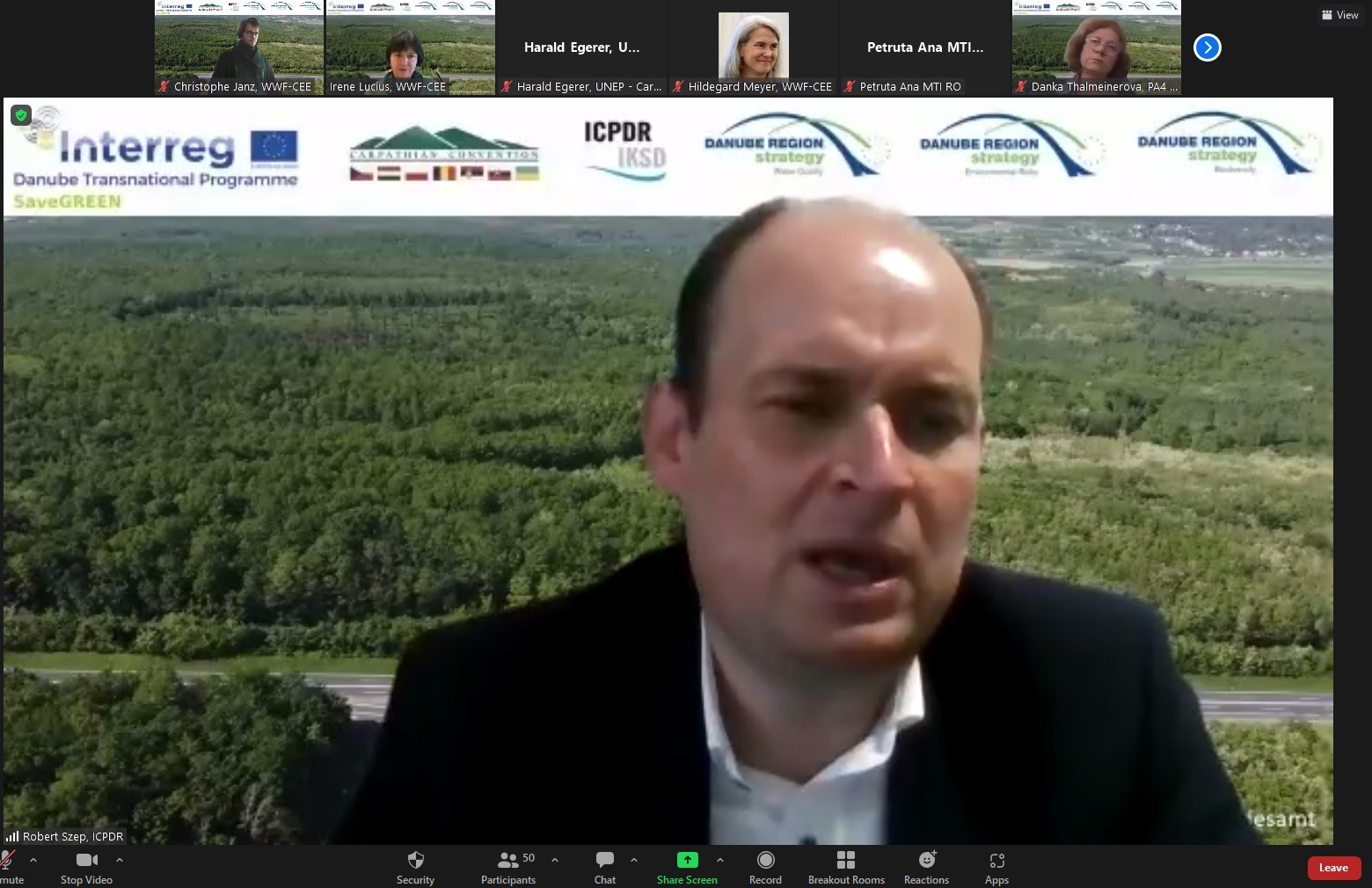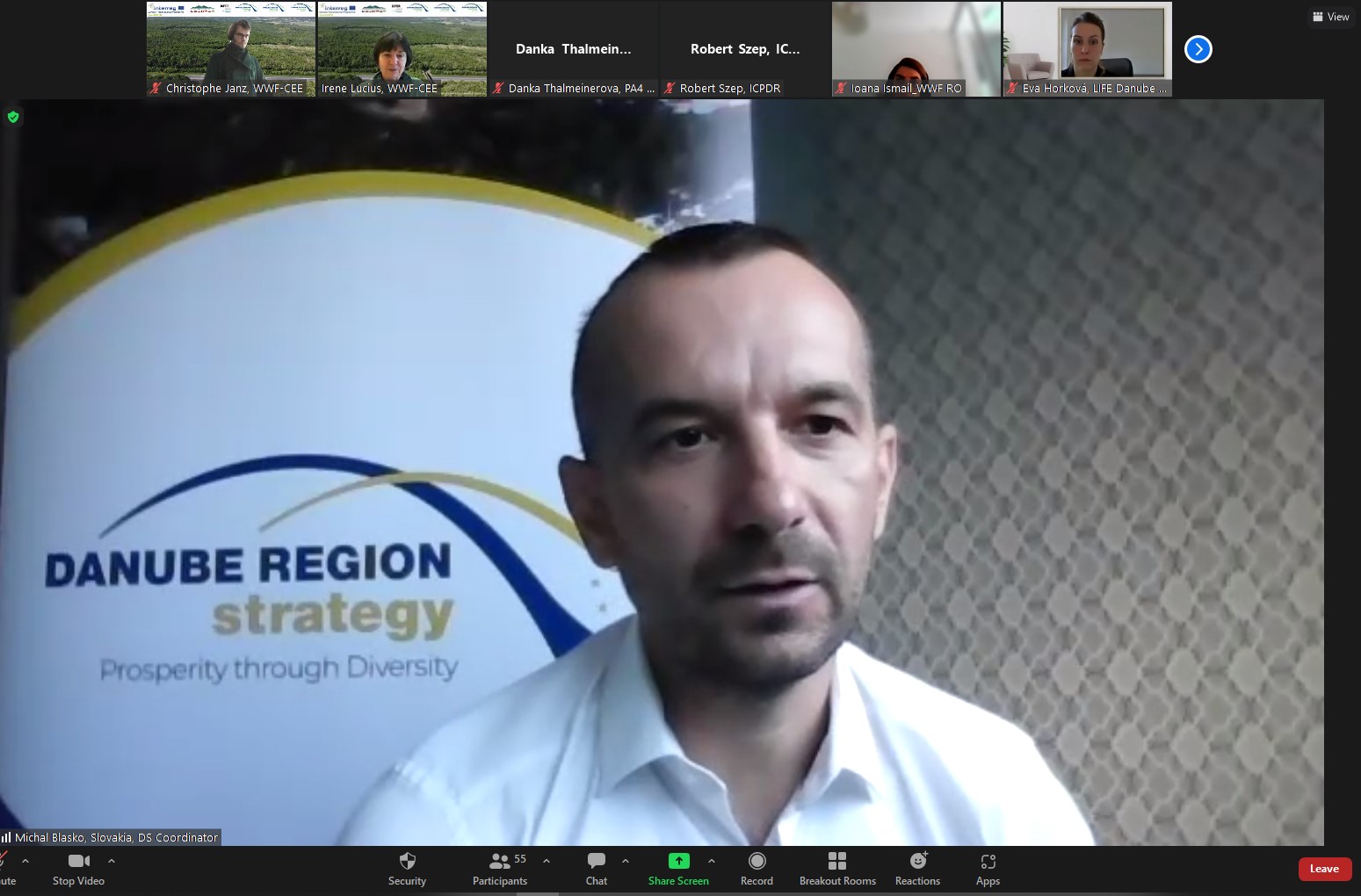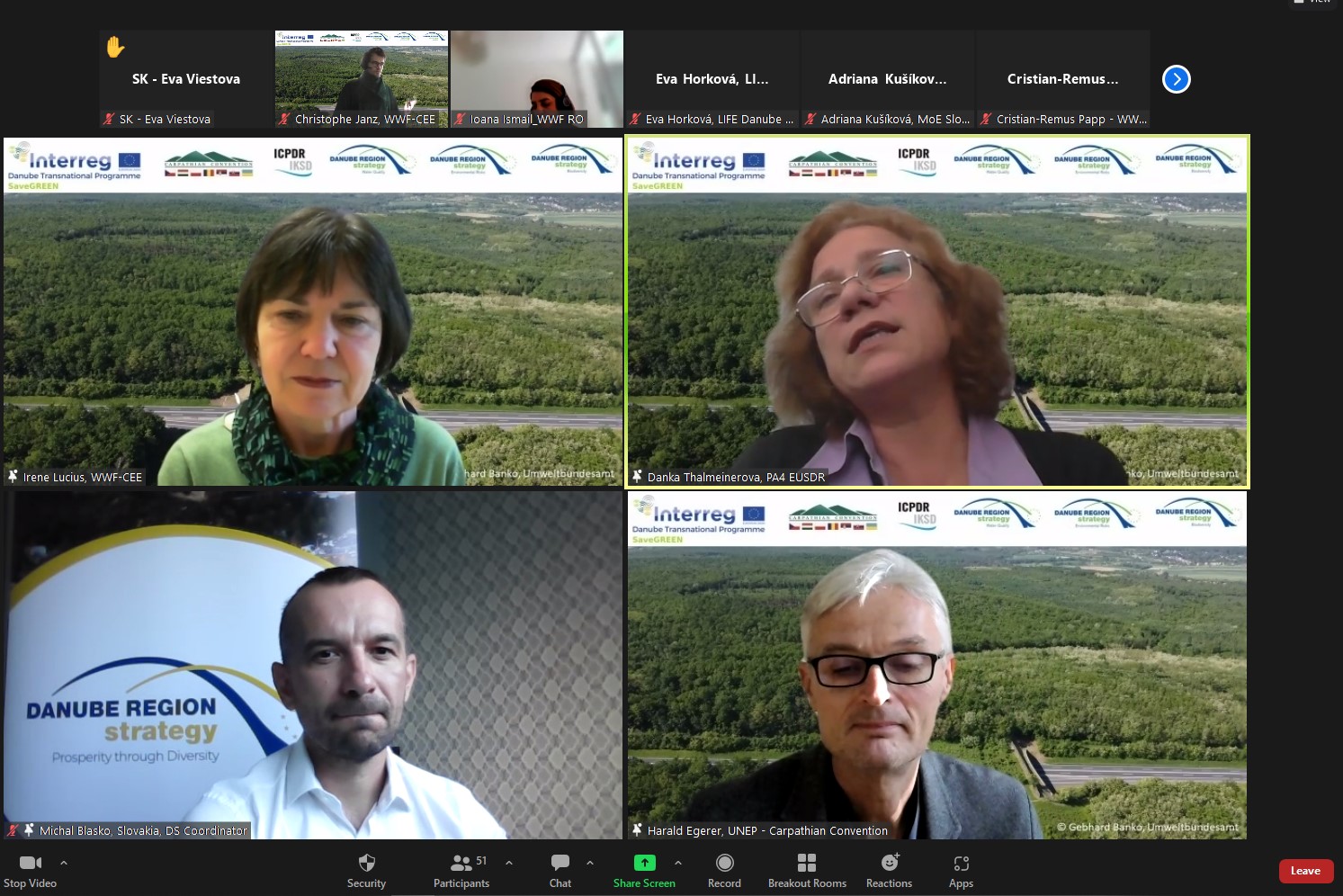|
On 18 October 2022, SaveGREEN co-hosted a Side-Event on Ecological Connectivity in the frame of the 11th Annual Forum of the EU Strategy for the Danube Region (EUSDR). The event, which celebrated the newly endorsed Declaration on Achieving functional biodiversity in the Danube-Carpathian Region by mainstreaming ecological connectivity, provided important regional actors to reaffirm their commitment to safeguarding ecological connectivity and biodiversity in the Green Heart of Europe.
The side-event “Achieving functional biodiversity conservation in the Danube-Carpathian Region by mainstreaming ecological connectivity – how to make it happen” was a collaborative event jointly hosted by the Secretariat of the Carpathian Convention, the International Commission for the Protection of the Danube River (ICPDR), the EUSDR Priority Areas 4 (Water Quality), 5 (Environmental Risks) and 6 (Biodiversity, Landscapes, Quality of Air and Soils), and WWF Central and Eastern Europe (WWF-CEE) on behalf of the SaveGREEN Consortium.
The side-event was opened and moderated by Ms. Irene Lucius, Conservation Director for WWF-CEE, who welcomed the participants and highlighted the urgent need to translate our knowledge of the crucial importance of biodiversity and the role of ecological connectivity into concrete action. She identified three ingredients, political will and cooperation across sectors as well as countries, as crucial components of this effort, and hopes that the new Declaration and this side-event will prove a solid milestone on the way to achieving these aims.
Following Ms. Lucius’ introduction, a video message was shared by Mr. Ján Kadlečík, Coordinator of the Carpathian Wetland Initiative, inviting all to join the Initiative and its partners in the drive to conserve and restore wetlands and rivers in the Carpathian Region. He too highlighted that only through cooperation, effective communication and the necessary political support will we be able to meet the targets of the UN Decade on Restoration and the EU Biodiversity Strategy.
|






